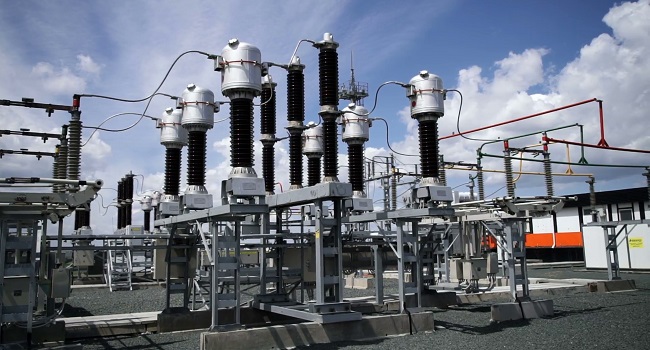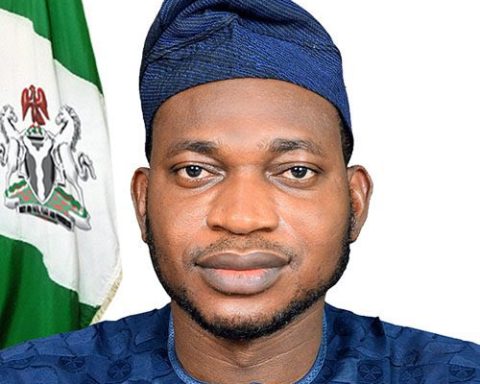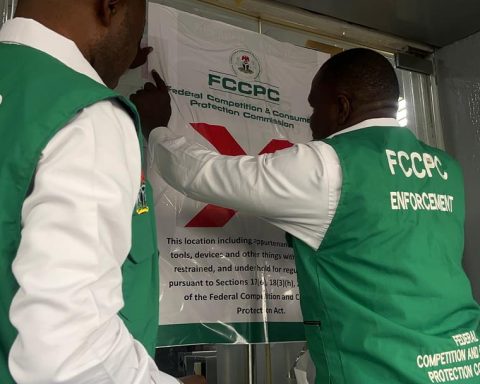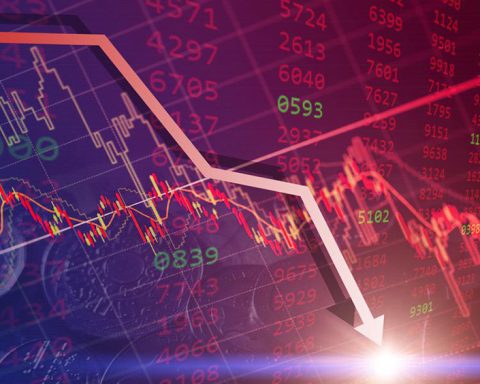Former Acting Chairman/CEO of the Nigerian Electricity Regulatory Commission (NERC), Dr. Tony Akah, has emphasized the need for the smooth implementation of the 2023 revised Electricity Act.
His remarks come amid the ongoing rift between state governments and electricity distribution companies (DisCos) over who has the authority to regulate tariffs in Nigeria.
Join our WhatsApp ChannelIn an exclusive interview with Prime Business Africa, Dr. Akah stressed that state commissioners must be “highly competent in electricity regulation and understand the Nigerian electricity supply industry.” He dismissed the notion that professional qualifications alone are sufficient, insisting that “regulation is a profession on its own.”
Akah also revealed that Nigeria does not currently offer specialized training in regulation or energy economics. “I went to Harvard, and I also travelled to Brazil and India for intensive studies on how these things are being done,” he said.
While acknowledging that states such as Enugu have the right to establish regulatory commissions, he warned that they must not ignore the federal government’s role in subsidy payments enjoyed by consumers.
According to him, the key to resolving the dispute lies in a clear delineation of roles between NERC and state commissions. He urged all parties to “join hands with the commission to build a more robust power sector,” adding that proper consultation could avert many conflicts.
READ ALSO:
- Anambra Police, Vigilante Group Raid Criminal Gang Camp, Rescue Kidnap Victim, Kill Four Suspects
- Ikeja, Eko Charge Higher As DisCos Release New Meter Prices
C. Don Adinuba, former Commissioner for Information and Strategy in Anambra State, argued that most states lack the capacity to benefit from the 2023 Electricity Act.
“Most states are wasting time and resources by setting up their own electricity regulatory commissions. Most state commissions can’t add any value. States that can theoretically build power generation companies are Lagos and the major oil-bearing ones because they have gas,” Adinuba said.
He explained that President Tinubu’s push for the 2023 Electricity Act was largely to enable Lagos to operate its electricity sector independently of the federal government.
“Within seven months of coming into office in 1999, Tinubu brought in Enron to provide power to Lagos, but ran into stormy weather with Obasanjo’s administration because power was then on the exclusive list. As president, Tinubu found the opportunity to make Lagos operate its electricity business without the overbearing FG. The 2023 Electricity Act was meant to assist Lagos.”
Adinuba faulted states like Enugu and Kogi for rushing into the implementation of the Act “without a good knowledge of the sector,” describing it as a “silly gamble.” He maintained that even though the law empowers states to regulate electricity, it is “not practicable” without power generation capacity.
“The legalism the Enugu State government officials and energy commissioners of other states are relying on for their actions is of little practical relevance,” he added.
Meanwhile, NERC has reportedly stepped in to mediate the ongoing dispute. The move comes after the Enugu Electricity Regulatory Commission announced a new tariff regime, which was met with resistance from power distribution companies.
States have argued that the Electricity Act 2023 empowers them to regulate their respective power markets, including setting tariffs. The Forum of Commissioners for Power and Energy in Nigeria insists that states have the power to design tariffs as far as distribution is concerned.
The DisCos, however, contend that states lack the power to fix prices for cross-border electricity, citing the Act’s provisions. Speaking under the auspices of the Association of Nigerian Electricity Distributors (ANED), the DisCos argued that states had no powers to put a price on electricity drawn from the national grid.
READ ALSO:
- Immigration Authorities Can Arrest People At Hospitals, Schools, Churches, Others, Says Trump
- Ikeja Records Highest Billing As Electricity Consumers Owe DisCos ₦70bn In May
The Dispute
The crisis began when the Enugu Electricity Regulatory Commission announced a new tariff regime, slashing the Band A tariff from N209 per kilowatt-hour to N160/kWh. However, power distribution companies, including MainPower Electricity Distribution Limited, resisted the move, arguing that states lack the authority to fix prices for cross-border electricity.
NERC has, therefore, invited all stakeholders, including state regulatory commissions, Discos, and other industry players, to a meeting scheduled for next week in Lagos. The outcome of the meeting will be crucial in determining the future of electricity tariff regulation in Nigeria.
According to The Punch, expert Adetunji Iromini has faulted NERC’s rejection of the Enugu regulator’s electricity tariff reduction, describing it as “dangerous.” According to Iromini, the Electricity Act 2023 empowers states to regulate their markets, and NERC cannot take a counter position solely based on the fact that state governments off-take power from th e national grid.
Amanze Chinonye is a Staff Correspondent at Prime Business Africa, a rising star in the literary world, weaving captivating stories that transport readers to the vibrant landscapes of Nigeria and the rest of Africa. With a unique voice that blends with the newspaper's tradition and style, Chinonye's writing is a masterful exploration of the human condition, delving into themes of identity, culture, and social justice. Through her words, Chinonye paints vivid portraits of everyday African life, from the bustling markets of Nigeria's Lagos to the quiet villages of South Africa's countryside . With a keen eye for detail and a deep understanding of the complexities of Nigerian society, Chinonye's writing is both a testament to the country's rich cultural heritage and a powerful call to action for a brighter future. As a writer, Chinonye is a true storyteller, using her dexterity to educate, inspire, and uplift readers around the world.
- Amanze Chinonye
- Amanze Chinonye
- Amanze Chinonye
- Amanze Chinonye
- Amanze Chinonye
- Amanze Chinonye
- Amanze Chinonye
- Amanze Chinonye
- Amanze Chinonye
- Amanze Chinonye
- Amanze Chinonye
- Amanze Chinonye
- Amanze Chinonye
- Amanze Chinonye
- Amanze Chinonye
- Amanze Chinonye
- Amanze Chinonye
- Amanze Chinonye
- Amanze Chinonye
- Amanze Chinonye
- Amanze Chinonye
- Amanze Chinonye
- Amanze Chinonye
- Amanze Chinonye
- Amanze Chinonye
- Amanze Chinonye
- Amanze Chinonye
- Amanze Chinonye
- Amanze Chinonye
- Amanze Chinonye
- Amanze Chinonye
- Amanze Chinonye
- Amanze Chinonye
- Amanze Chinonye
- Amanze Chinonye
- Amanze Chinonye
- Amanze Chinonye
- Amanze Chinonye
- Amanze Chinonye
- Amanze Chinonye
- Amanze Chinonye
- Amanze Chinonye
- Amanze Chinonye
- Amanze Chinonye
- Amanze Chinonye
- Amanze Chinonye
- Amanze Chinonye
- Amanze Chinonye
- Amanze Chinonye
- Amanze Chinonye
- Amanze Chinonye
- Amanze Chinonye
- Amanze Chinonye
- Amanze Chinonye
- Amanze Chinonye
- Amanze Chinonye
- Amanze Chinonye
- Amanze Chinonye
- Amanze Chinonye
- Amanze Chinonye
- Amanze Chinonye
- Amanze Chinonye
- Amanze Chinonye
- Amanze Chinonye
- Amanze Chinonye
- Amanze Chinonye
- Amanze Chinonye
- Amanze Chinonye
- Amanze Chinonye
- Amanze Chinonye
- Amanze Chinonye
- Amanze Chinonye
- Amanze Chinonye
- Amanze Chinonye
- Amanze Chinonye
- Amanze Chinonye
- Amanze Chinonye
- Amanze Chinonye
- Amanze Chinonye
- Amanze Chinonye
- Amanze Chinonye
- Amanze Chinonye
- Amanze Chinonye
- Amanze Chinonye
- Amanze Chinonye
- Amanze Chinonye
- Amanze Chinonye
- Amanze Chinonye
- Amanze Chinonye
- Amanze Chinonye
- Amanze Chinonye
- Amanze Chinonye
- Amanze Chinonye
- Amanze Chinonye
- Amanze Chinonye
- Amanze Chinonye
- Amanze Chinonye
- Amanze Chinonye
- Amanze Chinonye
- Amanze Chinonye
- Amanze Chinonye
- Amanze Chinonye
- Amanze Chinonye
- Amanze Chinonye
- Amanze Chinonye
- Amanze Chinonye
- Amanze Chinonye
- Amanze Chinonye
- Amanze Chinonye
- Amanze Chinonye
- Amanze Chinonye
- Amanze Chinonye
- Amanze Chinonye
- Amanze Chinonye
- Amanze Chinonye
- Amanze Chinonye
- Amanze Chinonye
- Amanze Chinonye
- Amanze Chinonye
- Amanze Chinonye
- Amanze Chinonye
- Amanze Chinonye
- Amanze Chinonye
- Amanze Chinonye
- Amanze Chinonye
- Amanze Chinonye
- Amanze Chinonye
- Amanze Chinonye
- Amanze Chinonye
- Amanze Chinonye
- Amanze Chinonye
- Amanze Chinonye
- Amanze Chinonye
- Amanze Chinonye
- Amanze Chinonye












